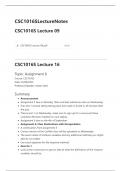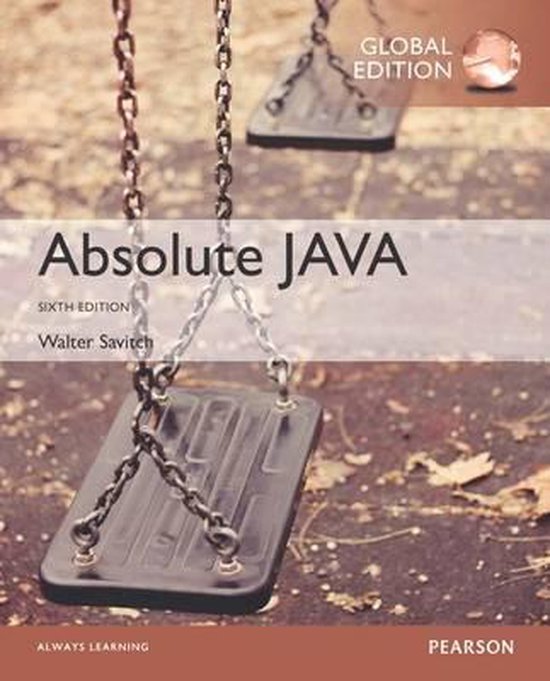Class notes
Introduction to Java
- Institution
- University Of Cape Town (UCT)
The notes were taken from all the lectures (including SIPP) since the beginning of the semester. Notes will be regularly up dated with time. Notes are concise and easy to read. They are a summation of the key points from the slides and the lecturers.
[Show more]




